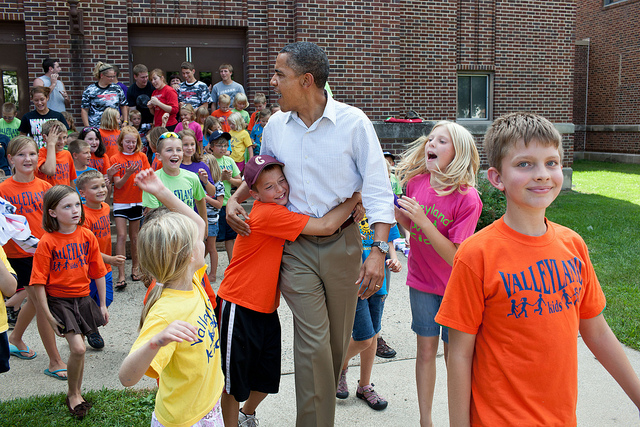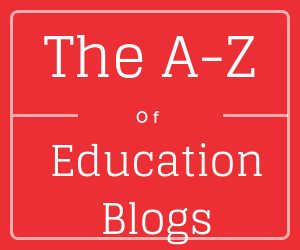English Language Learners and Music Go Together Like Peanut Butter and Jelly

A professor shares her tuneful tips for helping ELLs learn what to expect from English.
Dr. Nancy Drescher is a professor at Minnesota State University in Mankato, and has taught both children and adult English language learners (ELLs) in the U.S. and abroad. In this interview, she offers best practices for teaching these students to read, understand structure, and gain background knowledge.
The Edvocate: You believe that simply teaching English vocabulary words and grammar is not the best way to go about teaching ELL students. If that’s not the best way, then what is?
Dr. Nancy Drescher: When it comes to teaching English to a non-native speaker, you first have to build context for the words in the learner’s mind. Rather than teaching a list of standalone words, it is more effective to teach vocabulary using collocations, idioms, and other common phrases. Being a good reader comes from knowing what to expect.
For instance, you would never ask someone for a jelly-and-peanut butter sandwich. It has all the right words, but a native speaker would never phase it that way. It would go against their expectations.
Since ELLs have no pre-built expectations for the language they’re learning, reading becomes a much longer process. They have to stop and process each word and its context individually instead of being able to view a text as a whole. Learning phrasing and how words fit within context helps ELLs build these expectations and facilitate their reading experience.
The Edvocate: So you’re saying this is necessary for reading, too, not just for speaking?
Dr. Drescher: Yes. Students coming from different cultural and linguistic backgrounds can have difficulty with reading because they are used to a different set of expectations, both in terms of how words go together and background experiences. Students who have grown up using standard English (that is the English expected in school) at home and who have experience similar to what teachers expect and naturally build on in their classrooms are at a distinct advantage when it comes to learning to read.
Building these expectations is a normal process of learning to read for any child, not just language learners. Adults often groan when their child asks to read the same book over and over again, but doing this is actually an important part of the process of building these language expectations. Hearing the same book over and over is comforting when children are in the midst of figuring out those expectations. Teachers then build on that initial experience with language structures, but when students come to school with different initial experiences (whether that is a completely different language or a non-standard variety) and their previously learned language doesn’t match that of the classroom and of books, it is much harder for teachers to make those connections and for students to make that transition.
One way teachers and students can make that transition a little easier is narrow reading. Narrow reading involves reading many books on one topic or in a series. The repetition builds expectations by way of building vocabulary and structures in context. This concept is applicable for language learners and for struggling readers in general. If a person reads 10 different books on a topic or in a series, each one will get progressively easier as students gain familiarity with the language and conceptual expectations related to that topic. Another way to build this language repetition is through music.
The Edvocate: Tell us a little more about how using music can help build these expectations you’re talking about.
Dr. Drescher: Educators have been using music in language teaching for years. Music can enhance a student’s ability to read, understand structure, and gain background knowledge. It also adds another learning style, which broadens the reach of the lesson being taught.
The Edvocate: How can music help enhance reading?
Dr. Drescher: Connecting music, language, and books makes language easier to remember. The repetitive nature of songs helps set linguistic expectations. An especially catchy song will remain in students’ heads long after the lesson has ended, enabling them to hold on to the information in an enjoyable format.
Music and songs can also make language learning enjoyable. This is especially helpful for younger children, but also true for adult learners. Songs don’t feel like a grammar drill. Music is something people do for fun, and every culture and group has its own songs. Music brings people together in a fun and engaging way.
The Edvocate: What sort of curriculum is necessary for teaching ELLs?
Dr. Drescher: A lot of times there isn’t a curriculum already in place for ELLs. The current push is to have inclusive classrooms, where ELL students and teachers integrate with mainstream classrooms. This makes it all the more important to find additional scaffolds and supports for students in these types of classrooms. These scaffolds will help everybody, but they are completely necessary for language learners.
The Edvocate: Are there any particular scaffolds you’d recommend?
Dr. Drescher: A few years ago, I started working with Cantata Learning. They create picture books and corresponding songs with educational content for pre-K–3 students. Cantata’s materials benefit language learners, but also mainstream students. Inspired by Cantata, I wrote a few connected lessons geared towards English language learners. The songs integrated well into lessons, and it was easy to find a song about a particular unit. That is the sort of thing I recommend. If we can bring in multiple ways for students to engage with the language we hope they will be able to use and the content we want them to learn without drilling and killing their love of books and learning, I think we will find the most success for all kids.
The Edvocate: What do you think is the key to teaching English language learners?
Dr. Drescher: You have to keep in mind, learning any language is challenging, but our culture sometimes treats these challenges differently depending on the language being learned. For instance, a child learning English as a second language is often seen as having a deficit when compared to other children. However, when a native English speaker is learning a second language, or is enrolled in a second language emersion school, this is often viewed as an impressive feat.
It’s important to remember that English language learners do have knowledge and experience in their own language and in the world. By learning English, they are taking on a second language in addition to the one they already know. They are used to a different set of expectations, and so ELL lessons need to meet learners where they are in order to build on what they already have.





